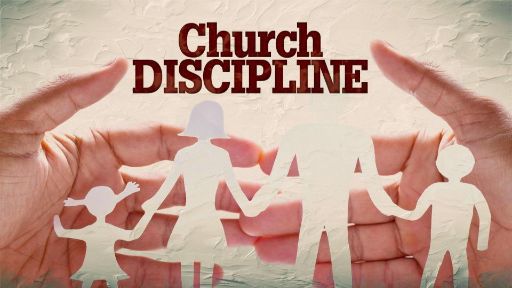-
Crime, Correction And Covenant: A Call For Revival
Contributed by Stephen Colaw on Sep 1, 2003 (message contributor)
Summary: The church must allow God to break our hearts and prepare us spiritually if we are to expect him to pour out revival upon us.
Crime, Correction and Covenant
Texts: Hosea 4:1, 5:14-6:1, 6:3, 10:11-12
Introduction: Your Honor, the jury finds the defendant, the church of the 20th century, guilty on all counts and recommends corrective action be taken. Guilty, what crime could we, as a church be guilty of? What corrective action could be taken against a body of believers?
No, this is not a scene from any recent court case. No church that I know of is currently being sued, and I don’t know of any congregations that are being sent into solitary confinement by our judicial system.
Yes, there are believers all around our world that are being imprisoned for their faith in Christ. Yes, there are churches that are being shut down because they preach that Jesus is the Way, the Truth and the Life. In many parts of the world today it will cost you your home, your career, your family and, in many cases, your life if you are genuine believer in Jesus Christ. But that is not the scene I’m describing today. I wish our church was on trial for these things and being found guilty, but I am afraid that is not the case.
Unfortunately, however, the haunting words of "Guilty on all counts" ring true to our churches and I believe that the resulting corrective measures are already in place. Today I want to tell you about the crime of the church, God’s correction for the church, and the covenant God will make with the Church. Please turn in your bibles to Hosea 4:1. Hosea’s message to the Israelites was one of crime, correction and covenant.
Let’s look at the parallels between the crime, correction and covenant of Israel and the crime, correction and covenant of the church today.
Read Texts:
“Hear the word of the Lord, you Israelites, because the Lord has a charge to bring against you who live in the land: There is no faithfulness, no love, no acknowledgement of God in the land.”
“Sow for yourselves righteousness, reap the fruit of unfailing love, and break up your unplowed ground; for it is time to seek the Lord, until he comes and showers righteousness on you”
I. The Crime
First, let’s discuss the crime.
“Hear the word of the Lord, you Israelites, because the Lord has a charge to bring against you who live in the land: There is no faithfulness, no love, no acknowledgement of God in the land.”
God had a charge against the people of Israel. When Hosea says, "the Lord has a charge to bring against you," the word “charge” is literally translated as: a lawsuit or a criminal case. It’s sort of a Jehovah vs. the People of Israel. The people have committed a crime and it’s now time to go to court.
Now, in criminal court there is a plaintiff, a defendant, a judge and a jury. In this case, not only is God the plaintiff, but he is the prosecuting attorney and the judge and jury as well. Now tell me, who’s side would you want to be on in this case?
A. There is no truth.
The first charge that He has against the people is that there is no truth in the land. There was no truth in what the people were saying, there was no honesty in their actions, they no longer trusted one another, and they were not keeping their word. There was no trustworthiness. The Hebrew word for truth is “emeth,” which means truthfulness in all aspects of life.
This truthfulness was absent in the Israel that Hosea spoke to. Is that truthfulness in our churches today? Do we practice what we preach? Do we walk the talk? That’s the truthfulness that Hosea spoke of and I’m afraid we, like Israel, fall short. The church is full of "Sunday Christians." Sunday Christians are people who are great with lip service, but that’s where it ends. God wants people who live His truth day in and day out all the time, even when nobody’s watching. Too often we only talk the talk but seem unwilling to back our testimony up with our lives. Thus, God can make the charge that there is no truth!
B. There is no love.
The second charge against Israel and against the church was that there was no love in the land. The word used is “chesed” or ”hesed”. This meant compassionate love or as one commentary put it Loving-Kindness. This is compassion and genuine concern for our fellow man.
Israel came up short here. The rich got richer and the poor got taken advantage of. People didn’t care for the needs of one another. The question on everyone’s mind, if not their lips, was “What’s in it for me?” How do we stack up? How much compassion do we have for our fellow man? So much of the time any more, the Church is so busy with self-perpetuation that we forget to take compassion on the world around us.

 Sermon Central
Sermon Central



